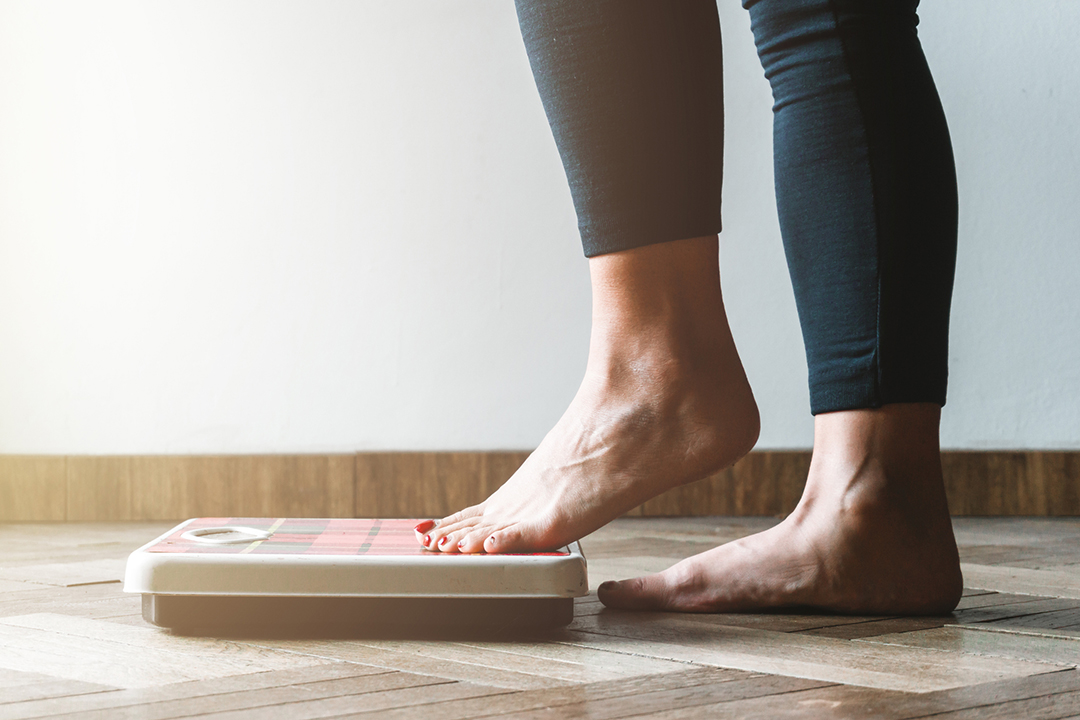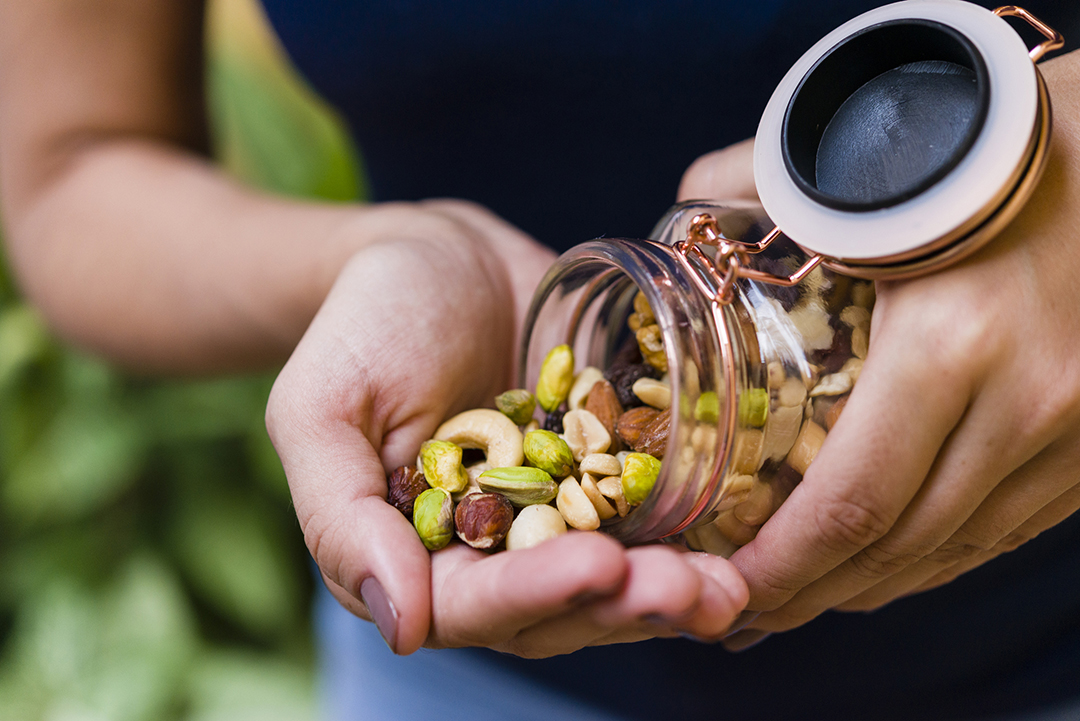Losing weight seems simple, right? If you burn more calories than you eat, the weight should fall off easily. Not quite. While certain diets and eating habits can help you lose weight faster, undereating and calorie restriction aren’t always as effective as we think. Read on to find out why undereating could be sabotaging your weight loss efforts, and what to do instead to finally burn that belly fat.
Why Undereating Doesn’t Help with Weight Loss
Dieting, restriction, and low-calorie fads tout the benefits of eating less. Unfortunately, that’s not how our complex bodies work. In fact, eating too little could slow down weight loss, prevent fat burning, and even lead to serious damage and health conditions. Here’s why:
Undereating leads to a slower metabolism.
When you’re trying to burn fat, you want a fast metabolism on your side. Unfortunately, eating fewer calories can indicate to your body that you’re in “starvation mode” and your metabolism will come to a halt. Your body will do its best to hold on to every piece of precious energy it has to make sure you survive – and that means fat!
Undereating makes you sluggish.
We all know that exercise is a huge part of losing weight. But when you don’t give your body enough fuel, staying active is tough. Low-calorie or restriction diets tend to make people feel sluggish and lethargic. As a result, you may not feel like hopping out of bed to take on your morning run. If you do get yourself to the gym, your workouts will be less impactful without proper fuel and energy. Not only will you experience slower weight loss, but you’ll also feel tired and run down, too.
Undereating can cause damage to muscles and organ tissue.
The body needs glucose to function. If it doesn’t get enough glucose through diet alone, it will have to break down muscle and organ tissue to get it. Instead of getting lean and fit, you may wind up with reduced muscle mass and weakness.
Undereating puts you at risk of nutrient deficiencies.
It’s difficult enough to get the vast range of recommended daily nutrients through diet. When you undereat, you are further limiting the vitamins, minerals, and compounds that your body needs to function. The most common vitamin deficiencies related to undereating are calcium, iron, vitamin D, zinc, and the B vitamins, as well as protein deficiency. In the short term, this typically leads to fatigue, moodiness, skin conditions, sleep problems, and muscle weakness. In the long run, these nutrient deficiencies can lead to faster aging and a range of chronic diseases.
Lose Weight a Better Way: 6 Things to Do Instead
So, if reducing calories and eating less isn’t always the path to successful natural weight loss, then what can you do to lose weight more quickly and sustainably? Here are a few simple ways you can adapt your diet to achieve your weight loss goals and feel healthier while dropping fat!
#1: Eat nutrient-dense foods.
Not all calories offer the same nutrition. The quality of that energy and the benefits of the substance that those calories are contained within can vary widely. Instead of opting for low-calorie filler foods, eat nutrient-dense whole foods. Not only will you stay fuller longer, but you’ll also reap the many benefits of healthy fats, proteins, vitamins, minerals, and antioxidants.
Here are some of the best nutrient-dense foods you can enjoy during your weight loss journey:
- Whole eggs
- Salmon
- Lean meats
- Leafy greens
- Beans and legumes
- Avocado
- Nuts
- Whole grains
- Berries
- Cruciferous veggies
#2: Fill your plate with veggies.
If eating less has left you hungry, fill your plate with vegetables. Most vegetables are packed with nutrients, vitamins, fiber, and water. They are low-calorie, meaning you can enjoy as many as you like without going too overboard. When you enjoy your veggies, be sure to eat them with a little healthy fat (like a drizzle of olive oil) to give your body energy and keep you satiated longer.
#3: Embrace healthy fats.
The fat-free craze has been debunked. Healthy fat is your friend, not a foe! Fat is a necessary nutrient that your brain and body need to thrive. Surprisingly, eating fat can also help you lose fat. As with anything, though, there are smart ways to enjoy fat and not-so-smart ways.
#4: Establish a mealtime routine.
If you’re trying to lose weight, skipping meals or eating at irregular times may be sabotaging your efforts. Studies show that mealtime does matter, and those who stick to regular mealtimes believe the routine plays an integral role in their successful weight loss. Mealtime routines give your body a healthy schedule, improve your metabolism, and help you avoid mindless snacking and bingeing. To create a healthy routine around mealtimes, plan. Or, you could experiment with set intermittent fasting schedules if your AlignLife Chiropractor feels it’s a fit for your unique situation.
#5: Stock up on healthy snacks.
Most people who struggle to lose weight aren’t bad at eating healthy – they just don’t have a solid plan in place. Being unprepared with planned meals and snacks is one of the quickest ways to fall off track with your diet. We opt for junk food in a crunch, or we let ourselves stay hungry. Either way, we have a recipe for a metabolism disaster. Keep your metabolism up and your belly happy by planning healthy snacks for weight loss throughout the day. Aim for snacks with protein and healthy fats, like nuts or veggies with hummus.
#6: Jumpstart your weight loss with a proven supplement system.
Want an unfair advantage for burning fat around your middle? Strategic supplements could be your new weight loss secret. Aceva’s Belly Fat Buster is our premier bundle of natural weight loss supplements that are engineered to help your body use fat for energy, reduce cravings, and restore a healthy gut microbiome. Together, these three products create a synergistic effect to help you burn fat, drop weight, and gain more natural energy. Here are the three key supplements in our Belly Fat Buster Bundle:

MetaTrim
MetaTrim is a powerful weight loss formula that encourages the body to use fat as energy and burn more fat throughout the day. It simultaneously helps you manage your cravings and boosts your energy.
Sugar Balance
Losing weight feels impossible when you are constantly craving sweets. With Sugar Balance, you can fight off these cravings while also enhancing how your body uses sugar to avoid added weight gain.
Ultrabiotic
Ultrabiotic is a high-quality probiotic that helps to restore balance to your gut. When “bad” gut bacteria take over your digestive tract, it’s easier to gain weight and harder to keep it off. By improving the overall balance of your belly with the “good” bacteria, Ultrabiotic gives your gut the foundation for healthy digestion and sustainable weight loss.
Lose Weight Naturally with Support from alignlife
Losing weight naturally doesn’t have to leave you hungry. In reality, low-calorie diets and undereating could even be working against you, so don’t hesitate to fill your plate! Successful weight loss through diet change comes down to eating enough of the right foods. At AlignLife, our team can help you discover what foods, routines, and other weight loss habits will work best for you.
Order your Belly Fat Buster bundle and schedule a visit with a local AlignLife Chiropractor to finally drop that extra fat and step into your healthier, slimmer self!








